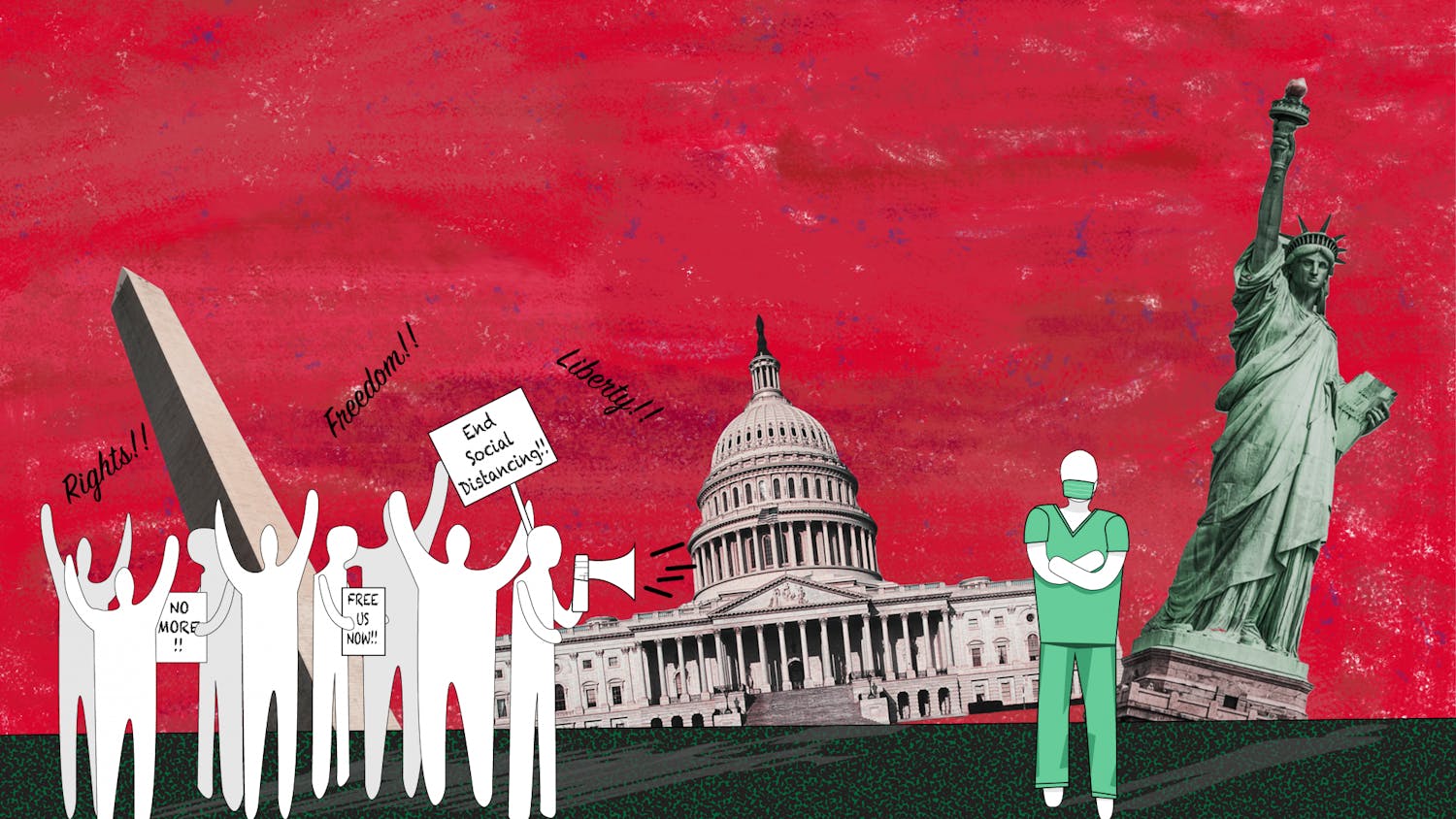In America, one in four women and one in nine men experience severe domestic violence in their lifetimes. Nearly 20 people per minute are physically abused by an intimate partner in the U.S., adding up to more than 10 million Americans each year. Domestic violence — broadly defined as physical violence, sexual violence, stalking or psychological harm inflicted by a family member or partner — affects more people than most would immediately think. Chances are, we know someone who’s at risk. For me, it’s my childhood best friend, who told me a week ago that she feared for her and her mother’s safety at home.
More than one public health crisis is looming over people’s lives: Domestic violence is a major problem festering during the COVID-19 lockdown. With much of the world ordered to stay home, domestic violence has suddenly become much harder to avoid.
Leaving home, however, exposes domestic violence survivors not only to coronavirus, but also to a world that has shut them out. Although domestic violence survivors make up an at-risk population, they are largely ignored in our discussions about how to best address the pandemic. We owe it to victims and survivors to speak up about this — policymakers should take more comprehensive action to support those whose safety is compromised by domestic violence.
Since the start of the pandemic, domestic violence cases have increased across the globe. In February, one police station in Wuhan, China received three times as many calls regarding domestic violence cases than it did during the same period last year. In March, the National Domestic Violence Hotline found that 951 callers in a two week period mentioned COVID-19 while reporting their abuse.
Data from the Great Recession of 2008 show that as economies plummet and unemployment numbers spike, domestic violence levels rise dramatically. Women hold two-thirds of America’s low-wage jobs, many of which have now been cut. This increased financial uncertainty stops many women from leaving their abusers. With most of the U.S. population told to stay home — in tandem with job instability and growing anxiety about whether there is an end in sight — the current situation seems more and more hopeless for survivors.
So where do we go from here? With much of the country shut down, some are concerned that seeking help is unlikely and at worst impossible. That’s not the case. Hotlines remain open, legal aid remains accessible and courts across the country have set up ways to file for protection orders by phone or email. The federal Coronavirus Aid, Relief and Economic Security Act allocates $45 million to Family Violence Prevention and Services Act funded programs that provide emergency housing and shelter to domestic violence survivors. It also provides funding for hotlines to continue their services for survivors who reach out.
However, these efforts have not been enough. For one, they came too late. While stay-at-home orders are critical for preventing the spread of COVID-19, we failed to recognize earlier how these new circumstances would make it easier for abusers to tyrannize their victims. Domestic violence shelters are quickly nearing capacity, and some domestic violence organizations are shutting down support groups and closing volunteer programs. As with the response to the virus itself, the delay in addressing the problem means that irreparable damage has already been done.
Domestic violence survivors are not just some niche demographic. Right now, they are one of the world’s most vulnerable populations — and if we’ve learned anything in the past few months, it’s that vulnerable populations get hit the hardest in times like these. The CARES Act does not support any sexual assault programming, nor does it support programs funded by the Violence Against Women Act. The next stimulus package that Congress proposes should provide funding for the Family Violence Prevention and Services Act, increase emergency Violence Against Women Act funding and address the long-term impacts of this crisis by dealing with dwindling deposits in the Crime Victims Fund.
As for the rest of us, we can all take steps to support people in our lives who may be at risk. We can provide support and listen when our friends talk about their past experiences. We can help them create a safety plan and encourage them to speak with advocates who can provide assistance. Right now, we have an excuse to reach out. Many of us are feeling isolated — the best thing that we can do for others is to make sure they know they’re not alone.



